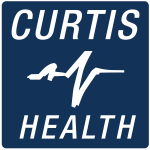In 2016, there was an article in the New York Times, about how Donald Trump – who claims to sleep between 90 minutes and 4 hours per night – exhibited all the signs of a person with chronic sleep deprivation.
The short term effects of sleep deprivation include lower cognitive abilities, mood swings and poor decision-making, which obviously can have impact on employee performance. But studies at Harvard Medicine show chronic lack of sleep is associated with long-term health consequences, including chronic medical conditions like diabetes, high blood pressure, and heart disease, all of which may lead to a shortened life expectancy.
And the problem is so sweeping that in the recently published Canadian Sleep Review 2016, the study found that only 26 percent of those asked slept more than 7 hours per night.
Other data from the study:
- Thirty-eight percent reported they slept 6 to 7 hours per night.
- Twenty-eight percent were getting 5 to 6 hours of sleep per night.
- Eight percent of Canadians are reportedly getting through their day with less than 5 hours of sleep.
So if this is such a wide spread and impactful situation, what can employers do?
Here’s a short list:
- Offer the help of the EFAP provider – There are sleep clinics to help improve sleep; nutritionists that can advise on what and what not to eat in the evening; counselling for other issues, such as marital problems, that might be affecting sleep.
- Be flexible with work hours – Some people are morning people and some people just aren’t. If you have a night owl working for you, it might be to the company’s benefit to allow that person to come in later and stay later into the evening to be most productive. Set guidelines as to core hours that a staff member must be onsite for meetings, etc.
- Make a small room available for naps – Not that you want your staff napping everyday like a kindergartner, but once in a while a short 15 min nap can be more effective that a coffee break. Again, setting guidelines is vital.
- Get your managers on board – Start from the top and make sure all the managers are trained to recognize individuals with sleep deprivation and its effects. Teach managers not to “last minute” people with projects that need to be completed “yesterday”.
Resources:
www.healthysleep.med.harvard.edu




I got a FitBit for a variety of reasons but a great bonus is the sleep tracking – I get about 4-5 hours during the week and 6-7 on nights when I don’t have to go work the next day
1 – our EAP does have counselling support – i’ll have to ask about sleep issues and nutrition
2 – while we can work flexible hours and telework, the core hours and time zone differences don’t always allow the best options but it’s something
3 – napping is awesome and I love doing it especially when my brain hurts – if I can work from home then a short afternoon break in my bed is always welcome for a refresh – if I’m at my desk then sometimes I put my head down and close my eyes to get a mind break as we don’t have a room available for this purpose
4 – I think everyone should attend whatever training may be out there to recognize sleep deprivation and it’s effects – getting anyone to not ‘last minute’ a project for completion ‘yesterday’ is a top down with sideways influence initiative